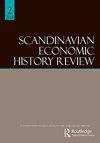Two cartel regimes. Swedish paper cartels and the EEC in the 1970s
IF 0.5
Q4 ECONOMICS
引用次数: 1
Abstract
ABSTRACT In 1973 Sweden entered into a free-trade agreement with the EEC. This meant that the EEC principle of prohibition of cartels met with the Swedish principle of abuse. Paper production was heavily cartelised in Sweden and Scandinavian export cartels exercised a strong influence over EEC markets. The problem is analysed in terms of legitimacy – how did the Swedish actors make their claims legitimate? When analysing the arguments used in the negotiations it becomes clear that the Swedish negotiators claimed that paper cartels and no tariffs provided more general utility whereas the EEC argument was that cartels were principally wrong and that the EEC utility was more important than the potential general utility. Since Sweden did not have the upper hand in the discussions the outcome became that the Scandinavian export cartels were formally dismantled and free trade for paper products had to wait for 11 years. When it comes to the actual effects, Swedish paper export could continue in much the same way as before. A process initiated by EC against the Scandinavian newspaper cartels ended up in a compromise founded on a common skepticism towards North American producers.两个卡特尔政权。20世纪70年代的瑞典纸业卡特尔和欧洲经济共同体
1973年,瑞典与欧洲经济共同体签订了自由贸易协定。这意味着欧共体禁止卡特尔的原则符合瑞典的滥用原则。瑞典的纸张生产严重卡特尔化,斯堪的纳维亚的出口卡特尔对欧洲经济共同体市场施加了强大的影响。从合法性的角度分析了这个问题——瑞典演员是如何使他们的主张合法化的?当分析谈判中使用的论据时,很明显,瑞典谈判者声称纸面卡特尔和不征收关税提供了更多的一般效用,而欧洲经济共同体的论点是,卡特尔基本上是错误的,欧洲经济共同体的效用比潜在的一般效用更重要。由于瑞典在讨论中没有占上风,结果是斯堪的纳维亚的出口卡特尔被正式解散,纸制品的自由贸易不得不等待11年。当谈到实际影响时,瑞典的纸张出口可能会像以前一样继续下去。欧共体发起的一项针对斯堪的纳维亚报业卡特尔的程序最终以对北美生产商普遍持怀疑态度的妥协告终。
本文章由计算机程序翻译,如有差异,请以英文原文为准。
求助全文
约1分钟内获得全文
求助全文
来源期刊

SCANDINAVIAN ECONOMIC HISTORY REVIEW
ECONOMICS-
CiteScore
1.60
自引率
16.70%
发文量
20
期刊介绍:
Scandinavian Economic History Review publishes articles and reviews in the broad field of Nordic economic, business and social history. The journal also publishes contributions from closely related fields, such as history of technology, maritime history and history of economic thought. Articles dealing with theoretical and methodological issues are also included. The editors aim to reflect contemporary research, thinking and debate in these fields, both within Scandinavia and more widely. The journal comprises a broad variety of aspects and approaches to economic and social history, ranging from macro economic history to business history, from quantitative to qualitative studies.
 求助内容:
求助内容: 应助结果提醒方式:
应助结果提醒方式:


